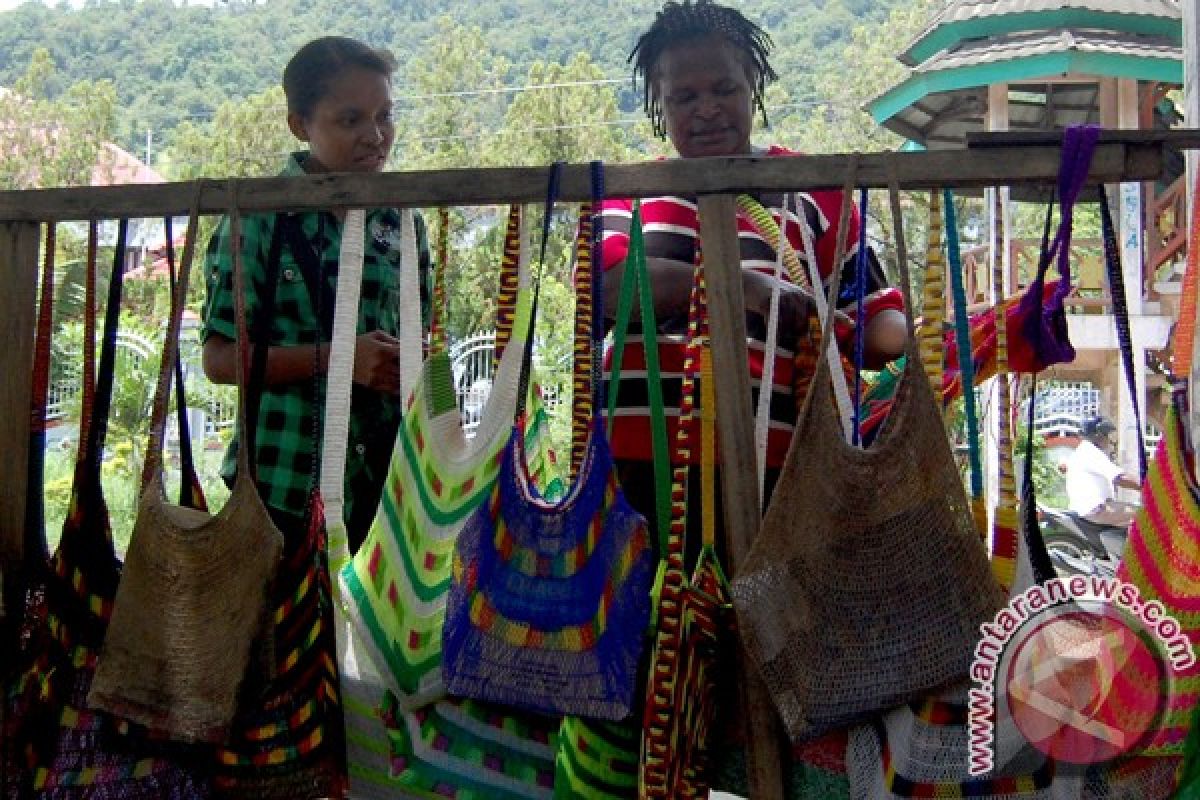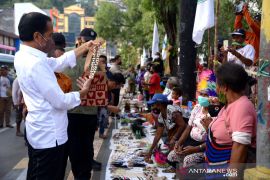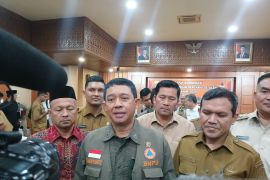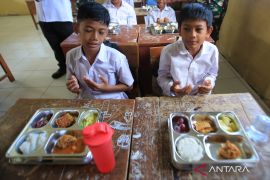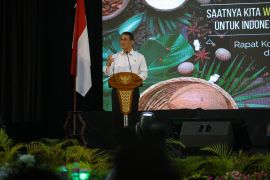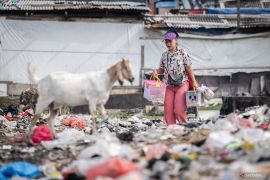"The women of Papua are very happy today," said Titus Pekei, chairman of the Papua Ecology Institute, on Wednesday (December 5), following the report on the UNESCO`s recognition of Noken as an intangible cultural heritage item.
Noken is a woven bag made from wood fibres and leaves. It is a bag made by the people of Papua and West Papua.
The people of Papua carry crops, fish, firewood, babies and small animals in the bag. They also use the bag for shopping and for storing items at home.
"UNESCO`s recognition will encourage us to protect and promote Noken as a cultural item, which is part of the heritage of 250 tribes in the Papua Province and the West Papua Province," said Prof Wiendu Nuryanti, deputy minister for education and culture, on Wednesday (December 5).
She said the UN's recognition is not Indonesia's ultimate goal. In fact, it is the beginning of a journey to protect and promote Noken as one of the country`s cultural heritage items.
"We are keen on working with several parties to promote Noken. There is a possibility that we may request Indonesian fashion designers to include Noken in their collection of fashion accessories," she said.
The process of making Noken is tedious. First, branches, stems and bark of certain small trees and shrubs are cut. They are then heated over a fire and soaked in water.
The remaining wood fibre is dried and later, spun to make a strong thread or a string, which is sometimes coloured using natural dyes. This string is made into knots, to make net bags with different patterns and of various sizes. The process requires patience and creative skills, which takes several months for one to be proficient in the area.
However, the number of people who make Noken is falling with each passing day. People are also not using Noken in their daily activities. According to the UNESCO (Jakarta Office), there are several reasons as to why there is a decline in the usage and creation of Noken, including lack of awareness, a significant decline in the number of craftspeople, competition from factory-made bags, and inaccessibility of traditional raw materials.
Therefore, to preserve the cultural heritage of Noken, a state-owned senior high school in Papua has included `Noken making' in its curriculum (since 2010).
"Students get to learn about the philosophies and the meaning of Noken, and how to make the woven bags," said Marshel Suebu (who teaches Papua`s traditional art at SMUN 1 Sentani), on Thursday (December 6).
In addition, a Noken museum will be built in Jayapura in 2013 to preserve and promote the traditional woven bag.
The education and culture ministry has been planning to build a museum since November 2011. The construction will start next year in Jayapura, said Apolos Marisan, head of the Papua and West Papua cultural heritage preservation office, on Thursday.
The education and culture ministry held a group discussion on Wednesday, to increase the public`s awareness of Noken.
During the discussion, it was mentioned that Papua has 257 tribes and local languages, and it is estimated that there are about 257 types of Noken.
The decision to recognise Noken as an intangible cultural heritage item was made by the UNESCO Intergovernmental Committee for the Safeguarding of the Intangible Cultural Heritage, during its 7th session at the UNESCO headquarters in Paris, France, on December 4.
It added four elements from four countries to its List of Intangible Cultural Heritage in Need of Urgent Safeguarding.
Besides Noken, three other newly listed elements include earthenware pottery-making skills from Botswana, the making of felt carpets from Kyrgyzstan, and gourd trumpet music and dance of the Busoga Kingdom from Uganda.
The Committee said the knowledge, practices and skills of the traditional arts and crafts industry are at risk of extinction.
A total of US$2.25 million has been donated to the Intangible Cultural Heritage Fund to safeguard the cultural heritage items.
The Netherlands has donated $324,000; Norway has donated $1,760,000; and Spain has donated $167,000. These donations will be used to support six capacity-building programmes in Africa, Asia, the Caribbean and the Middle East.
Indonesia`s Ambassador to UNESCO, Carmadi Machbub, is happy that Noken has made it to the UNESCO`s cultural heritage list, after the wayang (shadow puppet theatre), the keris (a traditional dagger), batik clothes, the angklung (a bamboo music instrument) and Aceh`s Saman dance.
"We hope there will be more nominations of Indonesian cultural heritage elements to the UNESCO, because they will strengthen the world's efforts to protect and preserve our cultural heritage for the future generations," he said. (*)
(f001/INE/a014)
Reporter: Fardah
Editor: Fardah Assegaf
Copyright © ANTARA 2012
